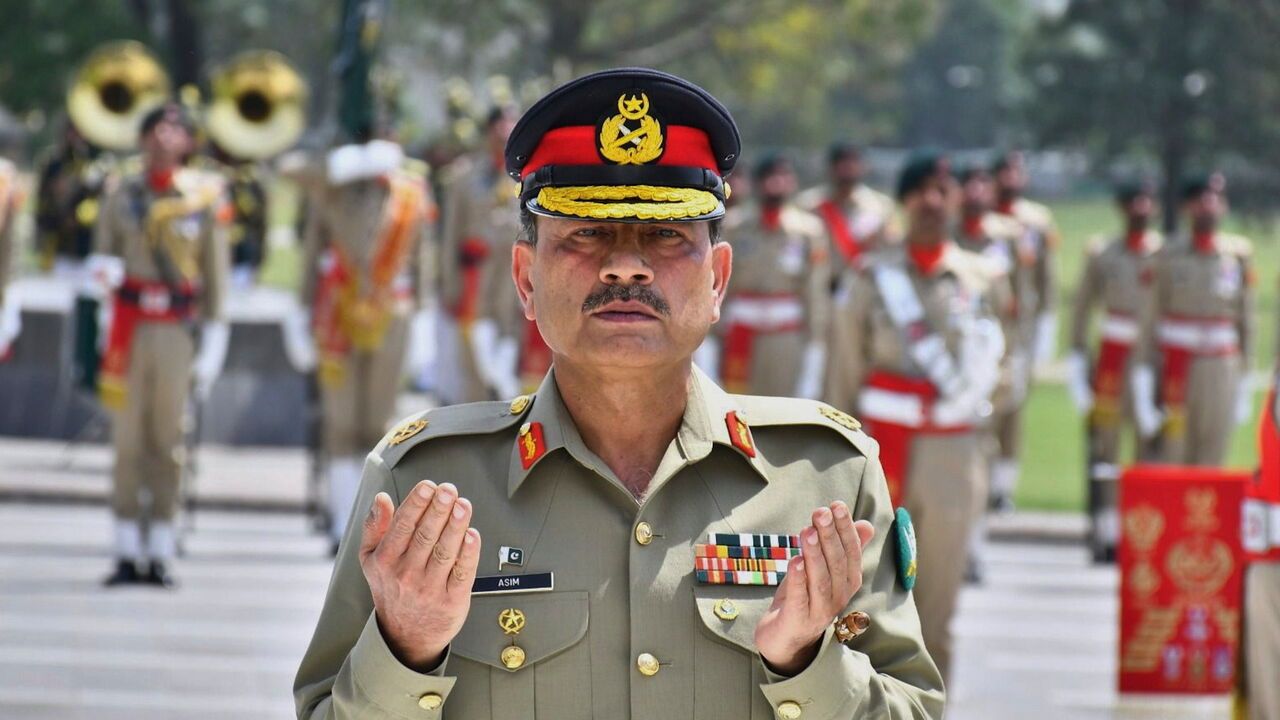Top Stories
Pakistan’s Army Chief Strengthens Ties with Trump Amid Domestic Struggles

Field Marshal Asim Munir, the chief of Pakistan’s army, is navigating a complex landscape marked by both international diplomacy and domestic challenges. On June 18, 2023, he dined privately with former U.S. President Donald Trump at the White House, a meeting that follows a period of significant tension between Pakistan and its neighbor, India. This interaction signifies a potential shift in alliances as Pakistan seeks to regain its footing on the global stage.
The backdrop to this meeting is fraught with issues for Pakistan. The country has been grappling with severe economic difficulties, including a substantial debt burden and rising insurgent violence. These internal challenges have led to a perception that Pakistan has been sidelined in global geopolitics, especially as countries like the United States have increasingly turned their attention to India, Pakistan’s long-standing rival.
Following the lunch, Trump made headlines again in July 2023 by labeling India a “dead economy” and imposing a 25% tariff on Indian goods. This move came alongside the announcement of a new trade agreement with Pakistan, further emphasizing a shift in U.S. foreign policy that appears to favor Islamabad over New Delhi. The implications of these developments are significant, as they could reshape trade dynamics in South Asia and affect regional stability.
Domestic Power Dynamics and International Relations
Field Marshal Munir has faced criticism at home for his perceived interference in politics. As he strengthens his ties with international leaders, he is simultaneously consolidating his power domestically. The political landscape in Pakistan remains volatile, with ongoing challenges to governance and stability. His engagement with Trump may serve not only to bolster Pakistan’s international standing but also to reinforce his position within the military and political hierarchy.
The meeting with Trump and subsequent trade announcements highlight the delicate balance Pakistan must strike between external relationships and internal governance. With a fragile economy and ongoing security threats, the stakes are high for Munir as he navigates these complex waters.
This evolving narrative is crucial for understanding the geopolitical shifts in South Asia. As Pakistan seeks to redefine its role on the international stage, the outcomes of these interactions could have lasting effects on its relationship with not only the United States but also its regional neighbors.
In summary, Asim Munir‘s recent engagement with Donald Trump symbolizes a potential turning point for Pakistan as it strives to recover from economic and political turmoil. The implications of these developments will likely resonate through the corridors of power in Islamabad and beyond.
-

 World5 months ago
World5 months agoSouth Korea’s Foreign Minister Cho Hyun to Visit China This Week
-

 Business5 months ago
Business5 months agoStarling Bank Plans Secondary Share Sale, Targeting $5.4 Billion Valuation
-

 Top Stories5 months ago
Top Stories5 months agoMunsang College Celebrates 100 Years with Grand Ceremony
-

 World5 months ago
World5 months agoPAS Aims to Expand Parliamentary Influence in Upcoming Election
-

 Business7 months ago
Business7 months agoKenvue Dismisses CEO Thibaut Mongon as Strategic Review Advances
-

 Lifestyle6 months ago
Lifestyle6 months agoHumanism Camp Engages 250 Youths in Summer Fest 2025
-

 Sports6 months ago
Sports6 months agoDe Minaur Triumphs at Washington Open After Thrilling Comeback
-

 Sports7 months ago
Sports7 months agoTupou and Daugunu Join First Nations Squad for Lions Clash
-

 Top Stories7 months ago
Top Stories7 months agoColombian Senator Miguel Uribe Shows Signs of Recovery After Attack
-

 World7 months ago
World7 months agoASEAN Gears Up for Historic Joint Meeting of Foreign and Economic Ministers
-

 Health6 months ago
Health6 months agoNew Study Challenges Assumptions About Aging and Inflammation
-

 Business7 months ago
Business7 months agoOil Prices Surge Following New EU Sanctions on Russia









